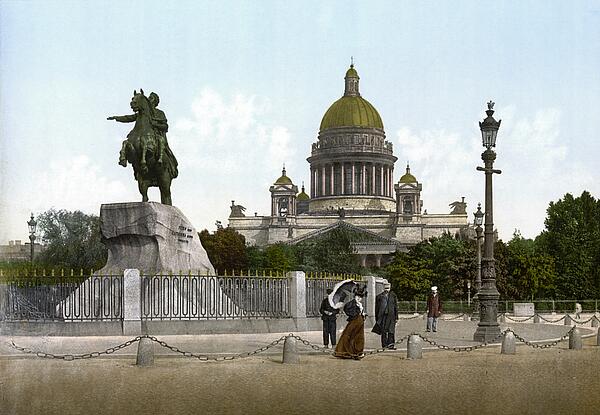Peter the Great - Government Reforms
Peter the Great launched a series of government reforms to modernise and improve the flawed political system. However, unlike his successful military and domestic reforms, his attempts to improve government had no lasting effects. alongside his military and domestic reforms.

Peter the Great - Government Reforms
When Peter the Great came to power in 1682, Russia’s government was split into three levels: central, provincial and local. Peter made a number of changes to the structure and running of these sections of government.
Local Government
Towns were given the right to elect their own officials, stimulate trade and collect revenue in January 1699. This meant that local government had more power, which in turn reduced the authority of provincial governments.
In 1702, Peter replaced the system of elected sheriffs with an elective board. This was changed once again in 1724. Towns had the right to govern themselves through elected guilds of more wealthy citizens. Although these reforms targeted the power of the local landlord and provincial governor, in reality it was very difficult to upend these deeply entrenched social systems.
Peter’s reign also further entrenched class divisions and in turn deepened the subjugation of serfs to the will of the landowners. He wrote: “Just as the landowner was to be tied to service, the townsman to his trade or handicraft, so the peasant was tied to the land."
Peter also gave land-owners new rights and powers, including the requirement that no serf leave his master’s estate without first getting written permission. His tax code also increased the number of people eligible for taxation, again increasing the burden on the working class.
However, some of Peter’s reforms were based on Enlightenment ideals. For example, he created a new class of serfs, called state peasants, who were awarded broader rights than normal serfs, but had to pay dues to the state.
Central Government
Peter appointed a nine man senate in 1711. It became the highest court of appeal and a chief executive. In 1715, the chief executive was replaced with an Inspector-General, who in 1722 was replaced with a Procurator-General.
In 1718, the Prikazy was abolished and replaced with nine colleges, which made collective decisions.
All political careers were open to the talented and educated. However, in reality the majority of posts were filled by the nobility.
How effective were these Peter the Great’s Reforms?
Peter the Great launched a huge number of reforms, which on paper promised to make the Russian political system fairer and more efficient. However, by 1725, little had changed.
This was due in part to Peter’s unwillingness to delegate responsibilities. He was an autocrat who pushed forward on his own initiatives.
Peter also preferred to use the army to enforce policy changes instead of his civil service, which was never afforded the option to show what it was capable of.
See also: Peter the Great - Domestic Reforms
MLA Citation/Reference
"Peter the Great - Government Reforms". HistoryLearning.com. 2026. Web.
